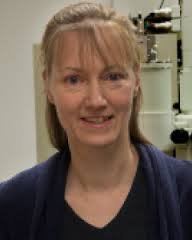
ingeborg.schmidt-krey@biosci.gatech.edu
Ingeborg Schmidt-Krey is an associate professor in the School of Biological Sciences at Georgia Tech. Her research interests lie in the structure and function of eukaryotic membrane proteins, two-dimensional crystallization, electron crystallography, single particle analysis, and electron cryo-microscopy (cryo-EM).
Associate Professor
Phone
404-385-0286
Office
Cherry Emerson A118
Additional Research
Eukaryotic membrane proteins comprise approximately 60% of all drug targets and are consequently immensely important for biomedical research. Despite their importance, only few could thus far be studied at the structural level. My research focuses on the crystallization, structure and function of eukaryotic membrane proteins. Electron crystallography is the main tool employed to study these proteins in my laboratory. Initially, this involves testing of conditions for growing two-dimensional (2D) crystals, usually by reconstituting the detergent-solubilized membrane protein into a bilayer. Once crystallization parameters have been identified by electron microscopy of negatively stained samples, electron cryo-microscopy is employed to collect high-resolution data. The structure is then obtained by image processing. The approach of 2D crystallization and electron crystallography is particularly suitable for highly fragile membrane proteins such as many eukaryotic ones. Reconstitution ensures an environment that is close to the native one, the detergent is removed, and functional studies are relatively easily undertaken. Experimental phases are obtained due to the fact that images are collected. In some instances the image amplitudes can be substituted with electron diffraction amplitudes. Although electron crystallographic methods are well developed, little is known about the factors important in 2D crystallization, and screening protocols as for 3D crystallization do not exist. An important aspect of my research interests aims at developing screening methods and strategies for 2D crystallization and at understanding the underlying mechanisms.
Research Focus Areas
IRI And Role
University, College, and School/Department
Google Scholar
https://scholar.google.com/scholar?hl=en&q=Ingeborg+Schmidt-Krey&btnG=&as_sdt=1,11&as_sdtp=





